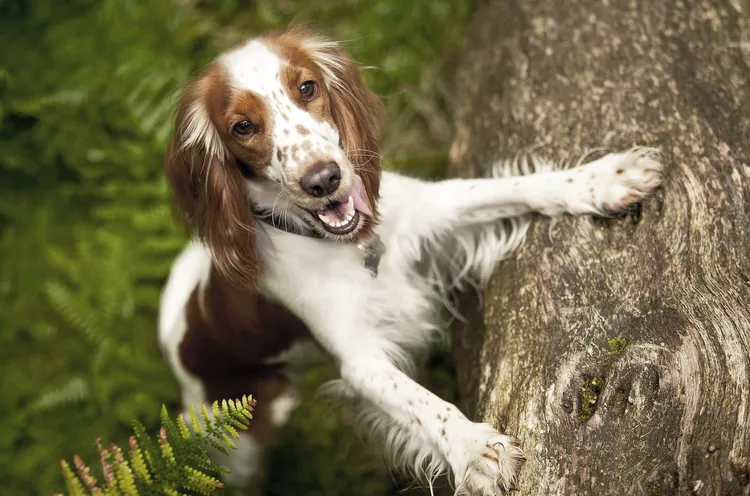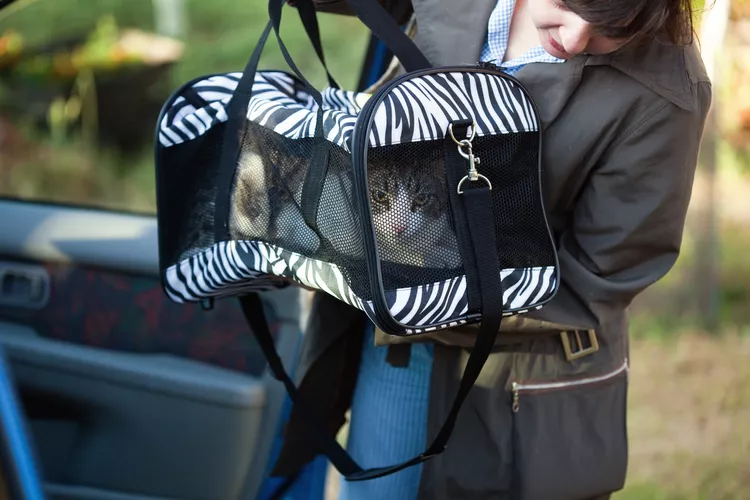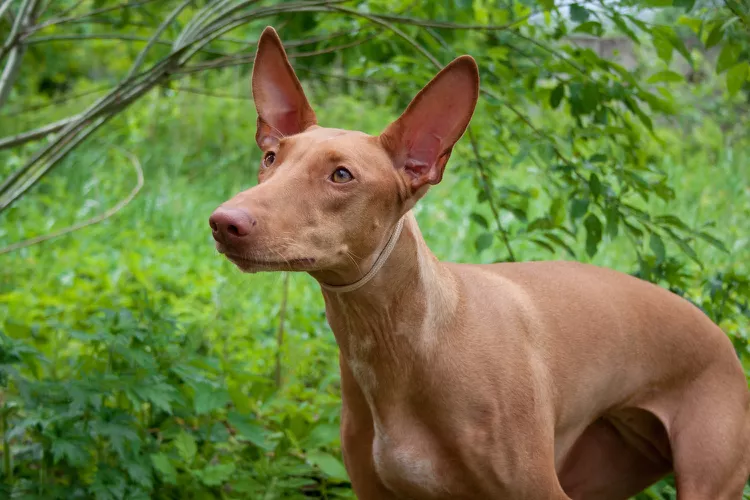
The Welsh springer spaniel is a medium-sized sporting dog from Wales with floppy ears, red and white fur, and a soft, silky coat that is typically kept long on its legs and chest. For owners looking for an active, happy, and affectionate family member, the Welsh springer spaniel could be a perfect match.
The Welsh springer spaniel is a close relative of the English springer spaniel, and these two types of dogs share an ancient history. The Welsh breed is slightly smaller and is only found with red and white markings, but it has several similar personality traits to its English cousins.
Group: Sporting
Height: 18 to 19 inches (males); 17 to 18 inches (females)
Weight: 40 to 55 pounds (male); 35 to 50 pounds (female)
Coat: Soft, straight, flat coat with some feathering
Coat Color: Red with white markings
Life Span: 12 to 15 years
Temperament: Happy, energetic, intelligent, playful, trainable
Hypoallergenic: No
Origin: Wales
The Welsh springer spaniel is known for being hard-working, energetic, enthusiastic, and affectionate. While they generally get along very well with other pets, these dogs are people-orientated. They're a great choice for families with children, and thanks to their amiable personalities, they also welcome strangers as new friends.
Welsh springer spaniels were bred to hunt with their owners, and this companionable temperament is still present in the breed today. This also means that these dogs aren't suited for homes with owners that leave the house often. They don't do well on their own, and as true "velcro dogs," they form strong bonds with their families. If you're prepared for an active pet that wants to join you on adventures, the Welsh springer spaniel might just be the perfect match.
It is thought that most spaniels are descendants of ancient hunting spaniels bred on the Iberian Peninsula. As this region is home to Spain, these breeds earned their name from the word "Spaniard." The Welsh springer spaniel is recognized as the oldest British spaniel according to the AKC.
While springer types can be traced back as far as the 16th century in the United Kingdom, records for the red and white variety specific to Wales began in the 18th century. During this time, they were popular with nobility and gentry and prized for their enthusiastic hunting skills. They were bred to spring upwards, pushing birds higher to be trapped in nets (before the use of guns became common). They have great scenting abilities, and their webbed feet make them strong swimmers that can also retrieve birds from the water.
The emerging English springer spaniel overtook the Welsh breed in popularity by the 19th century. In 1902, the Kennel Club in the U.K. formally recognized both spaniels as two separate breeds. Welsh springer spaniels were first imported to the United States in the late 19th century, then recognized by the American Kennel Club in 1906.
Not as popular as some of their other Spaniel relatives, World Wars I and II took a toll on Welsh springer spaniel breeding programs. Their population dropped drastically. It was thought that none remained in the United States after World War II, and it was only after more dogs were imported that passionate enthusiasts were able to revive the breed.
While their numbers have increased, Welsh springer spaniels are still relatively rare, especially in comparison to their English cousins (despite the Welsh breed being more laid-back).
Welsh springer spaniels are loving family dogs, but they require significant exercise and training to be well-mannered companions. Since their coats are long and silky, it's also important for owners to keep up with their grooming needs to prevent tangles.
Welsh springer spaniels are very active, and they are best suited to households that enjoy lots of outdoor exercise. This energetic breed needs to be active for at least two hours per day. They can make great competitors in dog sports, and they are strong runners and swimmers. Making sure your dog has appropriate alternative forms of stimulation (like a designated digging sandpit or puzzle toys) can be especially beneficial.
Welsh springer spaniels are moderate shedders, and their coats will need a brush out at least once a week. If you keep the feathering around their legs and tummies longer, then you may need to brush them out more frequently. This is an important step to help prevent tangles. When the coat does become tangled or matted, use a detangling spray and comb it out with your fingers before following up with a brush.
Like other dog breeds, Welsh springer spaniels will also need to have their teeth brushed, nails trimmed, and ears checked for any buildups of dirt and debris to prevent infections. If the ears need cleaning, use a cotton ball and cleaning solution specified for the ears.
Begin training Welsh springer spaniels with basic obedience lessons when these puppies are about eight weeks old. Since they have plenty of energy and enjoy pleasing their owners, training can be a fun process for both owner and dog. Your intelligent Welsh springer spaniel will respond very well to positive reinforcement methods rather than punishment.
This breed is known for alert barking, so owners may find it helpful to reward good behavior when the dog quiets down and directs its attention away from barking. Welsh springer spaniels also retain their hunting instincts, meaning they need consistent training for a reliable recall and should not be allowed off-leash outside of a fence.
If this breed hasn't been properly socialized, it may be a little reserved around strangers at first. Thankfully, the friendly nature of these dogs makes it easy to get them accustomed to social situations. Once your dog has become comfortable with different people, it's likely to welcome strangers going forward.
Welsh springer spaniels generally have a gentle temperament and can be great companions to respectful children. However, they are known for their exuberance and tendency to become overexcited. Working on training to stop jumping and keep all four paws on the floor is a great way to prevent young children from being knocked over.
The Welsh springer spaniel is known to be a generally healthy dog, but like most purebreds, it is still susceptible to a few problems. Responsible breeders will perform health screenings on prospective parents to reduce the risk of puppies developing inheritable conditions.
Some of the health issues this breed are prone to include:
Feed your Welsh springer spaniel high-quality dog food twice per day. The specific food your dog should eat depends on its age, as its nutritional needs will change over time. It's also important to monitor portions and treats, as these food-motivated dogs are likely to gain weight or become obese otherwise. Talk to your veterinarian to determine a healthy meal plan and portion sizes based on your dog's age, weight, and activity level.
Since the Welsh springer spaniel is a relatively uncommon breed in the United States, prospective owners may not have much luck finding these dogs in shelters. Check out breed-specific rescues to give a Welsh springer spaniel a forever home, or visit your local shelter to adopt a similar breed that can be your next best friend.
If you're planning to adopt a puppy, prepare to join a waiting list or travel if needed. It's essential to research responsible breeders first—both for the health and wellbeing of your puppy and to help prevent the growth of backyard breeders. Your breeder should provide you with the litter's medical history, allow you to meet the puppies' parents, and show you the conditions their dogs are kept in. Puppies may cost anywhere between $1,200 and $3,500, but prices can vary depending on pedigree and availability.
The national breed club, breed-specific rescues, and the AKC can help you start your search:
Affectionate and forms strong bonds with their family
Intelligent and eager to please
Well-suited to owners with active, outdoor lifestyles
Prone to separation anxiety
Can be over-excitable without appropriate training
Known for digging and alert barking
If you love Welsh springer spaniels, you may also like these similar breeds:
There are lots of wonderful dog breeds out there. With a little research, you can find the right one to have a forever home with you!
Loving, playful, and ready to go on adventures, Welsh springer spaniels make excellent family dogs for active owners. These dogs are always up for new activities, and their high energy level is a great match for families that like to spend plenty of time outside.
While they come from the same ancestors, Welsh and English springer spaniels have slightly different characteristics. The Welsh breed is the oldest British spaniel, and these dogs are a bit smaller with strictly red and white markings.
In comparison to its English cousins, the Welsh springer spaniel is considered a somewhat rare breed in the United States. The population of these dogs severely declined after WWII, but thanks to dedicated responsible breeders, more Welsh springer spaniels are being born each year.

How to Take a Car Trip With Your Cat
Think you can't travel with your cat? Think again! Traveling with your cat just takes a little preparation and planning. Here's how.
How to Determine Your Cat's Age
Determining the age of an adopted cat is just guesswork, but a vet can look at teeth, sexual maturity, fur coat, and eyes to estimate.
Cat Food Ingredients to Avoid
When checking the nutrition content of cat food, look for ingredients that are not healthy or show it is of poor quality. Avoid these 3 ingredients.
What You Need to Know About Homemade Cat Food
If you want to cook for your cat, make sure to read about the risks associated with homemade diets for cats
Can Dogs Eat Raw Chicken Feet?
What are the potential health benefits of chicken feet for dogs? What are the risks?
Macadamia Nuts and other Nuts That Are Toxic to Dogs
Find out why macadamia and other nuts are poisonous to dogs, what signs to look for, and what is needed to treat the toxicity.
10 Tips for Taking Care of a Senior Dog
Is your dog a senior? Changes to their diet, exercise, and care are required. Here's how to make sure they're living their best and healthiest life.
Hookworms in Dogs
Hookworms can make a dog uncomfortable but may also lead to serious blood loss and anemia. Learn the causes, treatment, and prevention.
Is Swiffer WetJet Safe to Use Around My Pet?
ASPCA toxicologists deemed Swiffer WetJet to be safe for use around pets, but there are other all-natural floor cleaning options available.
Can Dogs Eat Bread?
Is bread a safe snack for you dog? Are there kinds of bread you should avoid? Learn more about whether it's okay to feed your dog bread.
14 Hypoallergenic Cat Breeds for People With Allergies
There are no true hypoallergenic cat breeds. But some, such as the Siamese and Siberian, might be less likely to cause allergies than others.
Burmilla: Cat Breed Profile, Characteristics & Care
The playful and social burmilla is one of the newest cat breeds to be officially recognized by the CFA. Learn about burmilla breed.
Nebelung: Cat Breed Profile, Characteristics & Care
The Nebelung is a rare breed of domestic cat that’s known for their long gray-blue fur and gorgeous green eyes. Learn about the Nebelung cat breed.
Cymric: Cat Breed Profile, Characteristics & Care
The Cymric, a long-haired Manx, is one of the world's oldest cat breeds. This tailless cat is friendly and playful. Learn about the Cymric breed.
Here's Why Cats Groom Themselves
Learn all about cats' grooming habits: how and why cats groom, including mutual grooming, over-grooming, and displacement grooming!
Pharaoh Hound: Dog Breed Characteristics & Care
Learn all about the Pharaoh hound, a sight hound dog breed known for their slim appearance and the ability to blush when excited.
How to Walk Your Dog
Dog walks should be fun for your dog while respecting your community. Learn why walking your dog is important and get essential safety and training tips.
How to Stop Your Dog From Whining
Whining is a natural way for your dog to communicate with you. Explore the reasons dogs whine and how to discourage your dog from whining too much.
How to Stop Your Dog From Barking Excessively
All dogs bark, but excessive barking is a behavior problem. Learn how to help stop excessive barking and prevent it from happening all the time.
How to Train Your Dog to Live With Another Dog
When you add a second dog to your household, it's natural that there will be an adjustment period. Learn how to get two dogs to become acquainted.